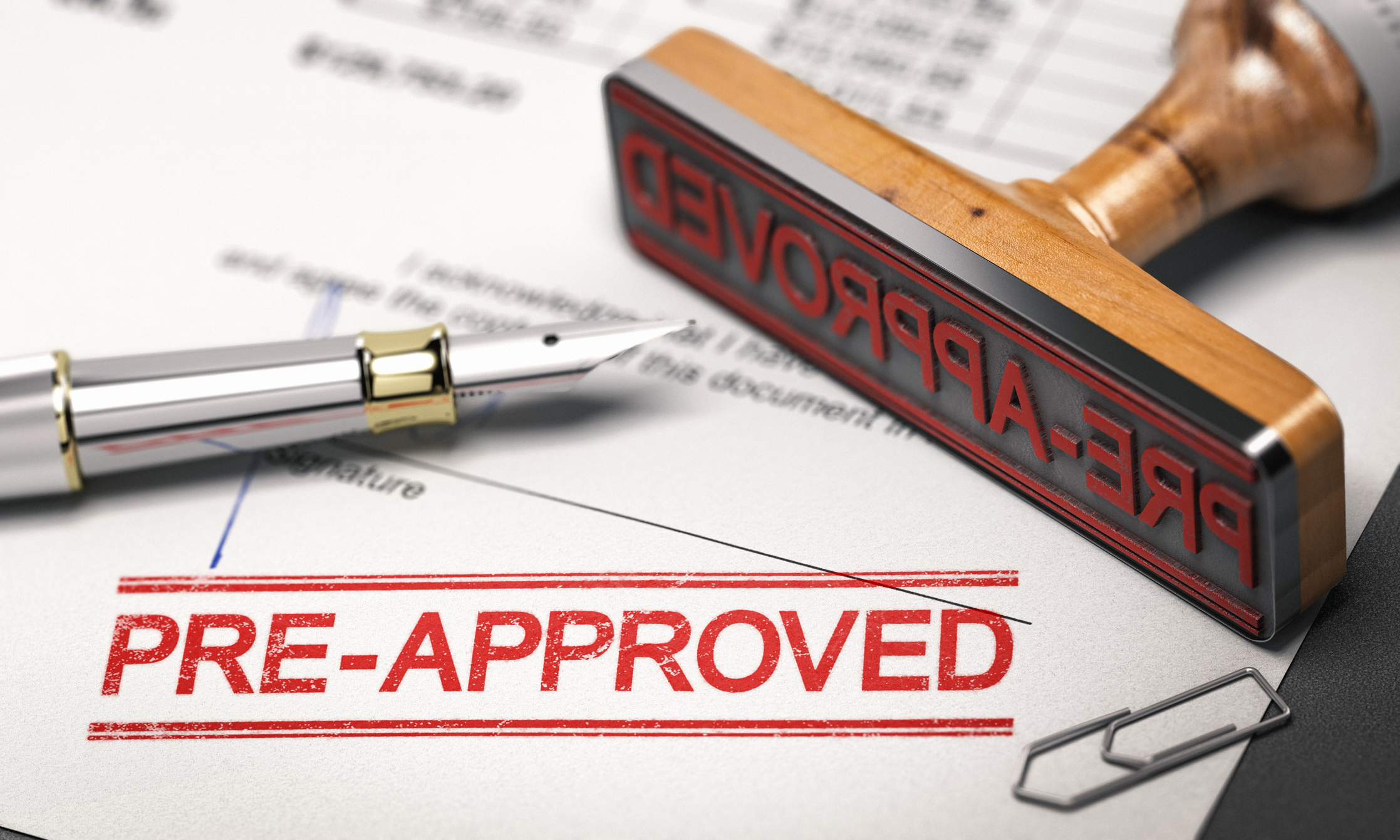10 Things Every Home Buyer Should Do
Buying a home may be one of the biggest purchases you will ever make. The more you know about the process, the more money you'll save.

Donna LeValley

Profit and prosper with the best of Kiplinger's advice on investing, taxes, retirement, personal finance and much more. Delivered daily. Enter your email in the box and click Sign Me Up.
You are now subscribed
Your newsletter sign-up was successful
Want to add more newsletters?

Delivered daily
Kiplinger Today
Profit and prosper with the best of Kiplinger's advice on investing, taxes, retirement, personal finance and much more delivered daily. Smart money moves start here.

Sent five days a week
Kiplinger A Step Ahead
Get practical help to make better financial decisions in your everyday life, from spending to savings on top deals.

Delivered daily
Kiplinger Closing Bell
Get today's biggest financial and investing headlines delivered to your inbox every day the U.S. stock market is open.

Sent twice a week
Kiplinger Adviser Intel
Financial pros across the country share best practices and fresh tactics to preserve and grow your wealth.

Delivered weekly
Kiplinger Tax Tips
Trim your federal and state tax bills with practical tax-planning and tax-cutting strategies.

Sent twice a week
Kiplinger Retirement Tips
Your twice-a-week guide to planning and enjoying a financially secure and richly rewarding retirement

Sent bimonthly.
Kiplinger Adviser Angle
Insights for advisers, wealth managers and other financial professionals.

Sent twice a week
Kiplinger Investing Weekly
Your twice-a-week roundup of promising stocks, funds, companies and industries you should consider, ones you should avoid, and why.

Sent weekly for six weeks
Kiplinger Invest for Retirement
Your step-by-step six-part series on how to invest for retirement, from devising a successful strategy to exactly which investments to choose.
Buying a home may be one of the biggest purchases you will ever make. The more you know about the home buying process, the more money, time and hassle you'll save.
If you have already read Four Smart Steps To Take Before Buying Your First Home, you probably have your location picked out and have taken steps to get your credit in the best shape possible. The Five Big Steps to Buying Your First Home will walk you through the home buying process.
Here we've outlined 10 things you should prepare for now if you plan to shop for and purchase a new house in the months ahead. Take a look and get a step ahead in the process.

1.Get preapproved for a mortgage loan
If you're curious to know how much you can afford to buy, you can get prequalified for a mortgage by a lender. However, a prequalification is just an estimate of what a lender thinks you can afford, based on basic financial information you provide.
You'll need to take it a step further once you're ready to start seriously shopping for a home. You'll want to get preapproved for a mortgage loan. The difference here is that the lender actually pulls your credit report and requires you to submit documentation that verifies your income and financial history. Once this has been confirmed, you'll receive a preapproval letter that assures prospective sellers and their agents that you can obtain a mortgage and close the deal.
Without one, a seller may not consider your offer, especially if they have other offers in play. A preapproval is usually good for 60 to 90 days.

2. Figure out how much you'll need for a down payment
Home buyers often believe they must make a down payment of 20% of the purchase price of a home to get a mortgage. Not so. Although a larger down payment may earn you a lower interest rate and results in a lower monthly mortgage payment, most lenders offer mortgage programs that allow low- to moderate-income borrowers to make much smaller down payments.
With the Home Possible program, backed by Freddie Mac, you can qualify for a mortgage with as little as 3% down. You needn't be a first-time home buyer, but your income cannot exceed 80% of your area's median income. The source of funds for the down payment can include a gift from a family member. You can apply with a co-borrower, such as a parent, who won't live in the home. Fannie Mae offers a similar 3% down program, called HomeReady.
The Federal Housing Administration (FHA) has traditionally served mortgage borrowers with less-than-stellar credit. Its loan program requires a minimum of 3.5% down.

3. Consider tapping your IRA for a down payment
First-time home buyers can tap their IRAs for a down payment. You're considered a first-time home buyer if you had no ownership interest in a main home within two years of purchasing a new house, according to irahelp.com. You can use the money to buy or build a home for yourself or your spouse, kids, grandchildren or parents.
First-time home buyers can withdraw up to $10,000 from a traditional IRA penalty-free. If your spouse has an IRA, he or she can do the same. If you take the money before you reach age 59 ½, you won't be hit with an early-withdrawal penalty, but you will owe taxes on the money.
If you withdraw the money from a Roth IRA, nothing must be repaid, ever. You can tap all your contributions (not earnings) to your Roth for any purpose, including a down payment on a home, at any time, tax-free and penalty-free. And, after the Roth IRA has been open for five calendar years (including the year you made the first contributions), you also can withdraw up to $10,000 of earnings tax- and penalty-free for the purchase of your first home ($20,000 if you're married and you each have a Roth).
With either a traditional or Roth IRA, you must use the money to buy or build a home within 120 days of the withdrawal. The $10,000 for a first-time home purchase is the maximum you can take over your lifetime, whether in one or multiple withdrawals.

4. Carefully review photos in online home listings
Virtual staging has become common practice with online home listings. It allows sellers to digitally decorate a property to showcase its best features and qualities in an effort to make it more attractive to buyers, according to RedFin.com. A seller might do this to show what an empty room in their home looks like with furniture and home décor items.
Where things can get tricky is if virtual staging is being used to remove a home's flaws. This includes changing paint colors, editing out stains on walls or carpets or deleting power lines in exterior shots of the home. This can be considered misleading and unethical.
This is why you may want to consider buying from sellers who are working with a licensed Realtor®, who is a member of the National Association of Realtors (NAR). That's because they must adhere to the organization's Code of Ethics & Standards of Practice, which prohibits them from manipulating photos in a way that may mislead consumers.
If you suspect the images have been virtually staged and it's not mentioned in the listing or there are no before/after photos, be sure to ask the seller's agent in advance. They should disclose without hesitation if that's the case.
If you do visit a home that doesn't stack up to the listing photos, you may wonder what else isn't on the up-and-up. In this scenario, it's probably best to walk away. If you're really ticked off, you or your agent can file an ethics complaint about the listing agent with the local association of Realtors® (if he or she is a member) or contact the agent's managing broker.

5. Determine an appropriate offer amount
Deciding how much to offer for a home requires a lot of information about recent sales of comparable properties, which your real estate agent should provide.
Say you find a condo you like in a building where friends live. They tell you that two other units in the building sold for $200,000 and $225,000. That's nice to know, but it's not enough information to make your decision. You should find out when those sales took place (the more recent, the better), what the properties were originally listed for and how long they were on the market. The closer to the original list price and the faster the property sold, the more accurately that seller set their price for the current market.
Plus, you'll want to know how the units compare in size, style, amenities and location in the building. Then, consider the asking price for the unit you want and make allowances for the current market climate, whether it's a buyer's market or a seller's. (This shouldn't be an afterthought. It's part of determining whether those sales are truly comparable.)

6. Get a home inspection
When you make an offer on a home, add a contingency for a home inspection to protect yourself from unpleasant and potentially costly surprises.
In a market where buyers have some advantage over sellers, you can use the inspector's report for further price negotiations, especially if the property needs any major repairs. In a market where sellers have the advantage, you can renege on the purchase contract and get your earnest money deposit back if the results of the inspection are unacceptable to you and the seller refuses to negotiate.
Plan on paying between $300 and $400 for an inspection according to Angi.com. That fee may vary by region and sometimes on the age, size and construction of the house.

7. Don't overlook closing costs
Besides gathering funds for a down payment, buyers should budget an extra 3% to 6% of the purchase price to cover the costs you must pay at settlement. Those usually include the loan origination fee, any discount "points" you pay to get a lower mortgage interest rate, the cost of title insurance, government recording charges, transfer taxes, an initial deposit for an escrow account (say, for property taxes and hazard insurance) and services, such as an appraisal and home inspection.
If you buy a home in a building or community with a homeowners' association, you may also have to pay your first year's annual HOA dues. (For a more detailed lists of potential costs, see Quicken Loan's Closing Costs and Fees Explained.)

8. Find out if you'll need to pay for title insurance
When the title to the home (your legal ownership with all of its rights and responsibilities) transfers from the seller to you, lenders want to make sure it's free of any impediments to your ownership and their collateral for the mortgage. Title defects, also referred to as clouds on the title, could include unreleased mechanic's liens, unpaid taxes, easements and unclear wills.
A title company will perform a title search to reveal any title problems before your closing. But, just in case, you must pay for a lender's title insurance policy as part of your closing costs. It protects the lender, not you, from any problems with the property's title that arise.

9. Determine if you'll need private mortgage insurance
If your down payment on a home is less than 20% of the appraised value, you will have to pay for private mortgage insurance or PMI. It protects the lender if you default on your loan. It costs about 0.5% to as much as 5% of the original amount of the loan per year, according to ValuePenguin.com. So, for a $200,000 mortgage, you would pay about $1,000 annually, or $83.33 per month, at the lower rate. Generally, the bigger your down payment (short of 20%) and the higher your credit score, the less PMI will cost.
With a loan backed by Fannie Mae or Freddie Mac, you can ask the lender to eliminate the cost of private mortgage insurance when your equity reaches 20% of the home's value (a loan-to-value ratio of 80%) through home-price appreciation and paying down the mortgage. So long as you are current on your mortgage payments, the lender must automatically eliminate the mortgage insurance when you reach 22% equity (a loan-to-value ratio of 78%). With an FHA loan, you must pay for mortgage insurance for as long as you have the loan.

10. Understand the tax deductions you'll qualify for
In the past you probably took the standard deduction when you filed your federal income taxes. But once you own a home, itemizing may make sense, and save you a lot on your tax bill.
If you purchased your home before Dec. 16, 2017, you can deduct interest on a mortgage of as much as $1 million ($500,000 if you're married and filing separately). For homes purchased after Dec. 16, 2017, you can only deduct interest on as much as $750,000 ($375,000 if you're married and filing separately). You can also still deduct interest on a second home, but total mortgage interest (for all homes) is capped at $750,000.
The law also caps the amount of state and local property taxes you can deduct at $10,000 ($5,000 if married filing separately).
In the year you buy a house, you can still write off discount points you may have paid in exchange for a lower interest rate on your mortgage, as well as deduct points that the seller paid for you.
Profit and prosper with the best of Kiplinger's advice on investing, taxes, retirement, personal finance and much more. Delivered daily. Enter your email in the box and click Sign Me Up.

- Donna LeValleyRetirement Writer
-
 Quiz: Do You Know How to Avoid the "Medigap Trap?"
Quiz: Do You Know How to Avoid the "Medigap Trap?"Quiz Test your basic knowledge of the "Medigap Trap" in our quick quiz.
-
 5 Top Tax-Efficient Mutual Funds for Smarter Investing
5 Top Tax-Efficient Mutual Funds for Smarter InvestingMutual funds are many things, but "tax-friendly" usually isn't one of them. These are the exceptions.
-
 AI Sparks Existential Crisis for Software Stocks
AI Sparks Existential Crisis for Software StocksThe Kiplinger Letter Fears that SaaS subscription software could be rendered obsolete by artificial intelligence make investors jittery.
-
 Could Tax Savings Make a 50-Year Mortgage Worth It?
Could Tax Savings Make a 50-Year Mortgage Worth It?Buying a Home The 50-year mortgage proposal by Trump aims to address the housing affordability crisis with lower monthly mortgage payments. But what does that mean for your taxes?
-
 12 Great Places to Retire in the Midwest
12 Great Places to Retire in the MidwestPlaces to live Here are our retirement picks in the 12 midwestern states.
-
 15 Cheapest Small Towns to Live In
15 Cheapest Small Towns to Live InThe cheapest small towns might not be for everyone, but their charms can make them the best places to live for plenty of folks.
-
 Best Cold Weather Places to Retire
Best Cold Weather Places to RetirePlaces to live Some like it hot; others, not so much. Here are the 12 best places to retire if you can't stand the heat.
-
 The 24 Cheapest Places To Retire in the US
The 24 Cheapest Places To Retire in the USWhen you're trying to balance a fixed income with an enjoyable retirement, the cost of living is a crucial factor to consider. Is your city the best?
-
 The Six Best Places to Retire in New England
The Six Best Places to Retire in New Englandplaces to live Thinking about a move to New England for retirement? Here are the best places to land for quality of life, affordability and other criteria.
-
 How to Search For Foreclosures Near You: Best Websites for Listings
How to Search For Foreclosures Near You: Best Websites for ListingsMaking Your Money Last Searching for a foreclosed home? These top-rated foreclosure websites — including free, paid and government options — can help you find listings near you.
-
 Best Cold Weather Places to Retire
Best Cold Weather Places to Retireplaces to live Some like it hot; others not so much. Here are the 12 best places to retire if you can't stand the heat.
